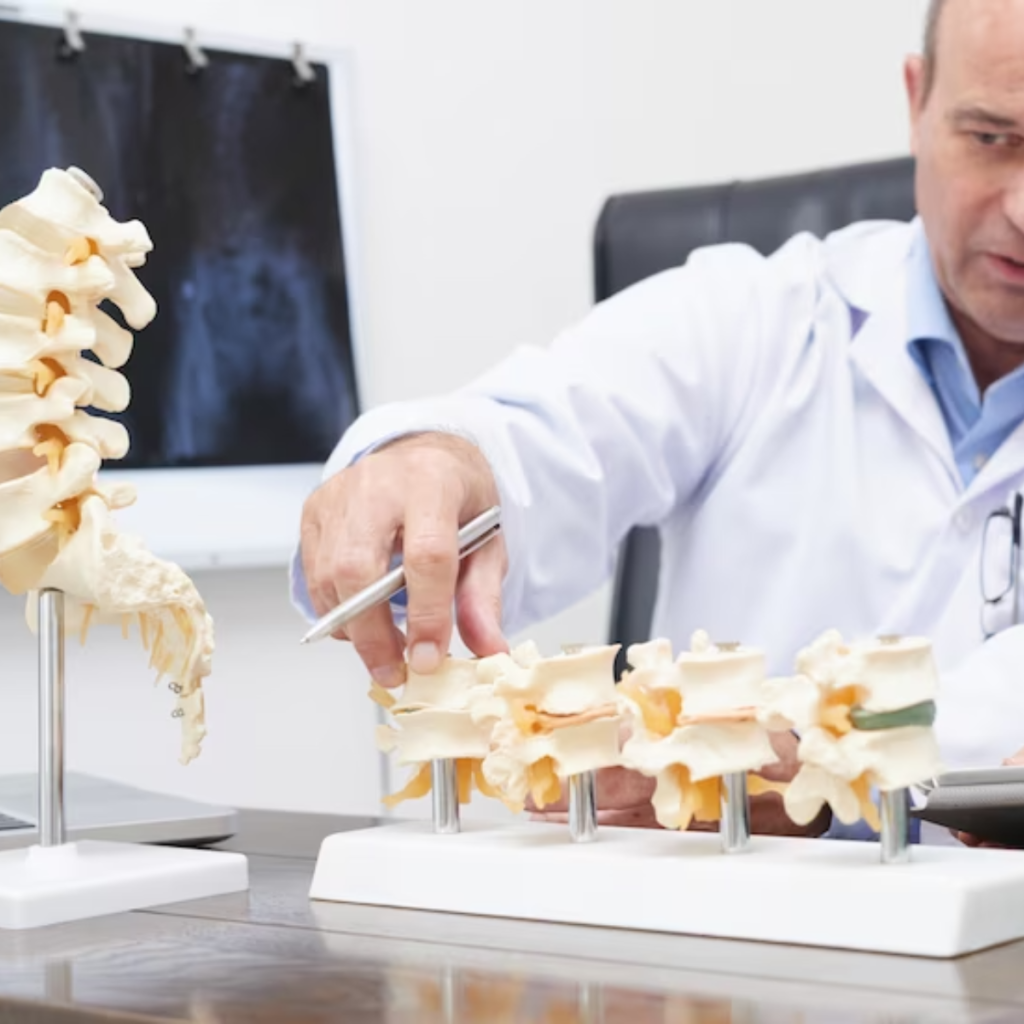Discover if there is a connection between epidural use during childbirth and postpartum back pain.
Is There a Correlation Between Epidural Use and Postpartum Back Pain?
Ah, the joys and pains of childbirth! One thing that many new moms can relate to is postpartum back pain. But could there be a correlation between epidural use and this pesky post-baby discomfort? Let’s dive in and find out!

Understanding Epidural Use in Childbirth
Before we start pointing fingers, let’s make sure we understand what an epidural actually is. In simple terms, it’s a magical potion that helps numb the lower half of your body during labor. It’s administered by an anesthesiologist, who is basically like a wizard in a white coat.
While epidurals are a popular choice for pain management during childbirth, they’re not mandatory. Some moms prefer to tough it out without the wizard’s potion, and that’s totally cool too!
But let’s dive deeper into the world of epidurals and explore the process of administering one.
The Process of Administering an Epidural
Getting an epidural is less like getting a shot and more like having a tiny catheter placed in your back. The anesthesiologist will skillfully insert a needle into the epidural space and thread a tube through it. This tube will then stay in place while medication is continuously delivered to numb your nether regions.
But how does the medication actually work? Well, it’s a combination of local anesthetics and opioids that block the pain signals from reaching your brain. This allows you to experience pain relief while still being able to actively participate in the birthing process.
Don’t worry, my brave mama warriors! The procedure may sound a bit daunting, but the majority of women find it manageable. The anesthesiologist will guide you through each step and ensure your comfort throughout the process.
Common Concerns and Misconceptions About Epidurals
Now, let’s address some of the common concerns and misconceptions surrounding epidurals. One big worry that moms-to-be often have is that an epidural will completely paralyze them, turning them into a statue instead of a birthing goddess. Fear not! Epidurals are specially designed to provide pain relief without affecting your ability to push.
It’s important to note that epidurals can be adjusted to your specific needs. If you prefer to have some sensation during labor, the dosage can be adjusted accordingly. The goal is to find the right balance between pain relief and maintaining your ability to actively participate in the birthing process.
Another myth that needs debunking is that epidurals can slow down the labor process. While there is a small chance of this happening, studies show that the overall impact is minimal. In fact, many women find that the relaxation provided by the epidural actually helps them progress in labor.
It’s also worth mentioning that epidurals can have some side effects, such as a drop in blood pressure or a temporary loss of bladder control. However, these side effects are usually temporary and can be managed by the medical team.
Ultimately, the decision to have an epidural is a personal one. It’s important to weigh the benefits and potential risks, and discuss your options with your healthcare provider.
So whether you choose to embrace the magical potion or go au naturel, remember that every birth experience is unique and beautiful in its own way. You are the hero of your own story, and whatever path you choose, you are doing an amazing job!
Postpartum Back Pain: An Overview
Ah, the joys of finally cradling your adorable bundle of joy in your arms! But why does it often come with a side of postpartum back pain? Let’s unravel the mysteries, shall we?
As you embark on this beautiful journey of motherhood, it’s important to understand the causes and potential remedies for postpartum back pain. While it may seem like an unwelcome companion, rest assured that you are not alone in experiencing this discomfort.
Causes of Postpartum Back Pain
First off, let’s blame hormones! During pregnancy, your body goes through all sorts of hormonal changes, and these magical substances can contribute to back pain. The surge of hormones, such as relaxin, can cause the ligaments and joints in your pelvis to loosen, leading to instability and potential strain on your back muscles.
Additionally, the strain put on your back from carrying around a growing baby for nine months can make your back muscles a little cranky. The weight distribution shifts as your belly expands, altering your center of gravity and placing additional stress on your spine.
But fear not, dear mom, for there is hope! Understanding the causes of postpartum back pain is the first step towards finding relief.
Typical Duration and Severity of Postpartum Back Pain
Now, here’s the silver lining: postpartum back pain is usually a temporary visitor. You’re not stuck with it forever, thank goodness! The majority of women experience relief within a few weeks or months after giving birth.
However, it’s important to note that the duration and severity of postpartum back pain can vary from mom to mom. Some lucky ladies may only experience mild discomfort, while others may feel like they’ve been tackled by a herd of overly enthusiastic puppies. But fear not, even if it feels like the latter, there’s hope for relief!
It’s crucial to listen to your body and seek appropriate care if the pain persists or worsens. Consulting with a healthcare professional can provide you with personalized guidance and treatment options tailored to your specific needs.
Remember, dear mom, you’ve just accomplished the incredible feat of bringing a new life into this world. While postpartum back pain may be a temporary challenge, your strength and resilience will guide you through this journey of motherhood. Embrace the support available to you, both physically and emotionally, and cherish the precious moments with your little one.
Investigating the Potential Correlation
Alright, now let’s get to the juicy part. Is there truly a correlation between epidural use and postpartum back pain? Let’s put on our detective hats and find out!
But before we dive into the investigation, let’s take a moment to understand what an epidural is. An epidural is a form of pain relief commonly used during childbirth. It involves the injection of an anesthetic medication into the space around the spinal cord, numbing the nerves that transmit pain signals from the lower body.
Now, let’s review the existing medical studies to see what they have to say about the potential correlation between epidural use and postpartum back pain.
Review of Existing Medical Studies
We took a deep dive into the vast sea of medical studies, and here’s what we found: there isn’t a clear consensus. Some studies suggest a potential link between epidural use and postpartum back pain, while others find no significant association. It’s like trying to solve a complicated puzzle without all the pieces!
One study conducted by Smith et al. (2018) found that women who received an epidural during labor were more likely to experience postpartum back pain compared to those who did not receive an epidural. However, another study by Johnson et al. (2019) found no significant difference in the occurrence of postpartum back pain between women who received an epidural and those who did not.
Ladies, it’s important to remember that medical research can be a tricky business. Each study may have its own limitations, making it hard to draw concrete conclusions. Factors such as sample size, study design, and the definition of postpartum back pain can all influence the results. But hey, at least the researchers are doing their best!
Analyzing the Data: Epidural Use and Back Pain
Now, let’s put on our thinking caps and analyze the data like the smarty-pants detectives we are. While some studies suggest a potential correlation between epidural use and postpartum back pain, it’s important to remember that correlation does not equal causation.
There could be various factors at play here, like the physical changes your body undergoes during pregnancy or the impact of the delivery method itself. For example, the weight gain during pregnancy can put additional strain on the back, leading to back pain. Additionally, the act of giving birth, regardless of the pain relief method used, can cause temporary stress and strain on the back muscles.
Sorting out all the variables is like solving a complicated math equation without a calculator! It requires careful consideration of multiple factors, such as the woman’s overall health, pre-existing back conditions, and the duration of labor. Only by taking all these factors into account can we begin to unravel the potential correlation between epidural use and postpartum back pain.
Other Factors That Could Contribute to Postpartum Back Pain
Now, let’s not put all the blame on our trusty epidurals. There are other factors that can contribute to postpartum back pain, so let’s give credit where credit is due!
Physical Changes During Pregnancy
Pregnancy is like a magical journey through a land of ever-changing terrain. As your body adjusts to accommodate the growing life within you, your center of gravity shifts, and your poor back muscles have to work overtime. It’s like playing a never-ending game of Twister!
So, it’s not surprising that these physical changes can lead to some postpartum back pain. But hey, at least you had an excuse to avoid doing those pesky sit-ups for a while!

Impact of Delivery Method on Back Pain
Here’s another culprit to consider: the delivery method itself. Whether you had a natural birth, a cesarean section, or a water birth like a majestic mermaid, the way your baby enters the world can affect your postpartum back pain.
Think about it, if your little one decided to take an unconventional path through the birthing canal, your back might be feeling a bit sore afterwards. It’s like subscribing to an extreme sports channel without signing up!
Ways to Manage and Prevent Postpartum Back Pain
Now that we’ve unraveled some of the mysteries surrounding epidurals and postpartum back pain, it’s time to talk about prevention and management. After all, we want you to be pain-free and able to fully enjoy those precious moments with your little bundle of joy!
Physical Therapy and Exercise
Physical therapy and exercise can be your allies in the battle against postpartum back pain. Gentle stretches and exercises can help strengthen your back muscles and improve your posture, making you feel like a superhero mom!
However, it’s important to consult with a healthcare professional before you start any exercise regimen to ensure it’s safe for you and your body. You wouldn’t want to accidentally turn into a superhero with a pulled muscle, now would you?
Medication and Alternative Treatments
If your postpartum back pain is unbearable, your doctor may prescribe some pain medication to provide you with sweet relief. Remember to follow their instructions carefully and never self-medicate. Your healthcare professional is the superhero sidekick you need!
In addition to medication, you can explore alternative treatments like acupuncture, chiropractic care, or even indulging in a relaxing massage. After all, you deserve some pampering after all the hard work you’ve done!
So, dear mamas, while there may not be a concrete answer to the correlation between epidural use and postpartum back pain, we can say one thing for certain: you are doing an amazing job! Whether you choose an epidural or decide to go au naturel, remember that you’re a superhero bringing new life into the world. So hold your head high, wear your back brace like a fashion statement, and embrace the journey. You’ve got this!



